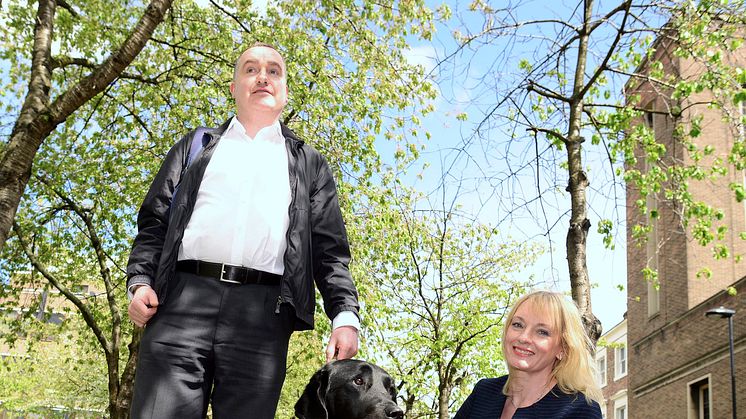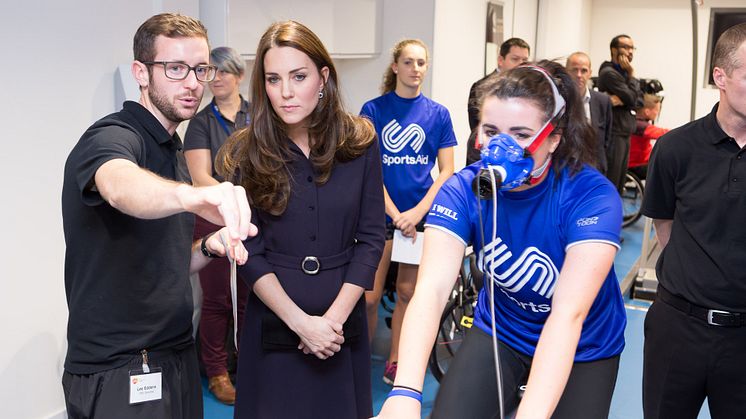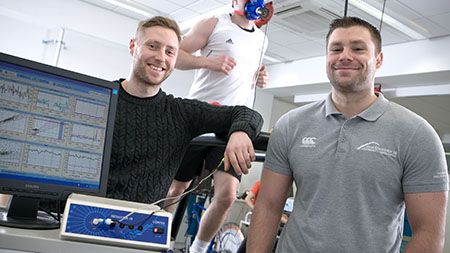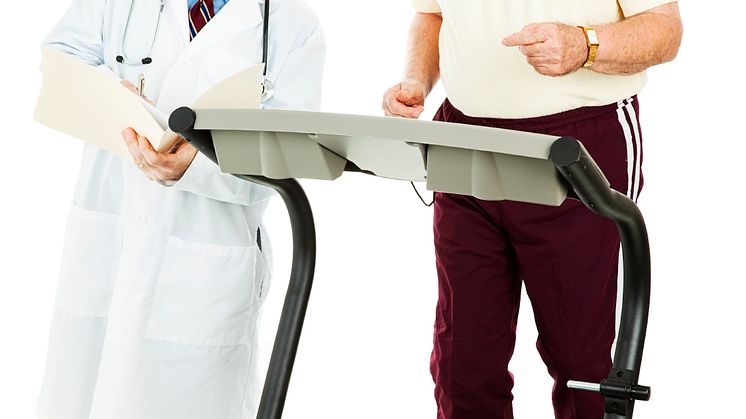
Press release -
Can exercise help older people with vision problems avoid falls?
Older people with visual impairments are participating in a major study looking at how exercises can help to prevent falls.
Falls are the most prominent reason for admission to hospital for accidental injury and cost the NHS approximately £4.6 billion per annum. Older people with poor vision are at a much higher risk of falling. Some older people also report suffering from a fear of falling which impacts on their lives and their ability to participate in activities.
The study, which is funded by National Institute for Health Research (NIHR), is being led by Northumbria University in collaboration with Newcastle, Manchester and Glasgow Caledonian Universities as well as several charitable organisations.
The researchers will work with visually impaired older people to develop an exercise programme using strength and balance techniques to help to prevent falls. The study will be based in Newcastle and Glasgow using participants aged over 60 who attend a low vision clinic or are a member of a society for the visually impaired.
Nicola Adams, a Professor of Rehabilitation at Northumbria University, explained: “Fear of falling is a real and frightening prospect for older people, particularly those with poor vision. However, many falls are preventable.
“Research has shown that following a fall, older people restrict their activities rather than suffer the consequences, both physical and psychological, that they associate with a fall. This can lead to a vicious spiral of decline in their strength, mobility and balance meaning they are actually at increased risk of falling in future.
“Participation in exercise can help to build confidence, as well as ensuring that people are fitter and healthier and this can, in turn, help to prevent falls.
“Our intention is to assess the benefit that specially targeted and adapted exercises focusing on balance can have on an individuals’ health. The exercises will be individually-tailored to cover strength, endurance, flexibility, gait and functional skills, as well as correcting existing techniques to help to avoid falls.
“We ultimately hope that we will develop a group exercise programme for visually impaired older people that can be successfully delivered in the community, making them much more accessible for larger groups of people.”
 The participants will be assessed by a researcher who will check their strength, balance and flexibility before they are randomly assigned to one of two groups. The first cohort will undertake specially designed exercises for 12 weeks in a weekly hour-long group class, while the others will be encouraged to continue with their usual activities.
The participants will be assessed by a researcher who will check their strength, balance and flexibility before they are randomly assigned to one of two groups. The first cohort will undertake specially designed exercises for 12 weeks in a weekly hour-long group class, while the others will be encouraged to continue with their usual activities.
All participants will be encouraged to keep diaries of their falls and will be contacted weekly from the start of the study to six-months after its completion.
Niall McMurty, Project Manager for the Royal National Institute for Blind People, said: “People with sight loss are at a high risk of falls and injuries resulting from falls can set people back considerably. Having a fear of falling can prevent people from going out independently and stops them participating in everyday life. Anything we can do that can help to improve confidence, balance and physical fitness will be a real help.”
Shelagh Palmer, Health Coordinator at Glasgow-based organisation Visibility, added: “Working closely with visually impaired people, it quickly becomes apparent that this fear of falling is limiting their mobility and quality of life. As many older people live alone and are not able to confidently get out and about, by bringing people together in groups to participate in these exercise classes we are working to improve their quality of life not only in terms of strength and mobility, but also in terms of developing social networks and peer support groups.”
The Universities are working in partnership with the Thomas Pocklington Trust, a national charity for people who are blind or have sight loss; the Royal Victoria Infirmary, Newcastle Society for Blind People, HealthWORKS Newcastle and Visibility in Glasgow.
Northumbria University is actively undertaking research into ways to improve life for older people. Together with Newcastle University, Northumbria is jointly hosting the annual British Society of Gerontology conference in July. The Society brings together those interested in older people to find ways to enhance and improve ageing and later life.
This year’s conference will be attended by 400 of the world’s leading experts on ageing to consider the challenges and future prospects relating to ageing in changing times. Researchers, practitioners and policy makers will meet with students, academics and older people to consider issues including health and wellbeing, society and the economy and technologies for ageing.
Categories
Northumbria is a research-rich, business-focussed, professional university with a global reputation for academic excellence. To find out more about our courses go towww.northumbria.ac.uk
If you have a media enquiry please contact our Media and Communications team at media.communications@northumbria.ac.uk or call 0191 227 4571.










